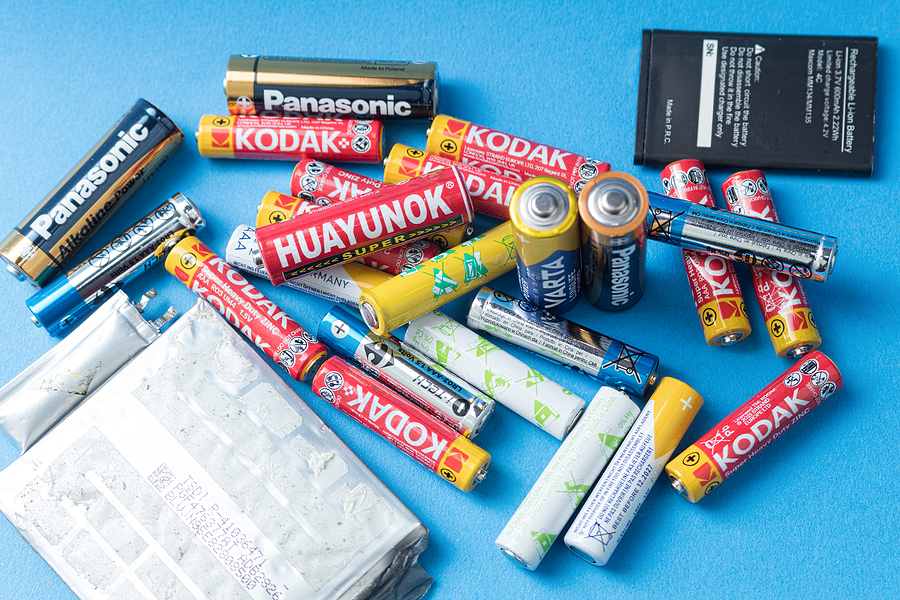
An R&D Consortium Created
$192 million in funding has recently been allocated by the U.S. Department of Energy to create a research and development consortium dedicated to advancing battery related developments.
“With the demand for electric vehicles (EVs) and stationary energy storage projected to increase the lithium battery market by as much as ten-fold by 2030, it is essential to invest in sustainable, reduced-cost recycling of consumer batteries in support of a secure, resilient and circular domestic supply chain for critical materials,” a press release noted.
This new injection of funds brings President Biden’s total spending on electric vehicle and battery technology close to $3 billion.
“The United States is leading the way in developing advanced battery technologies that will power our clean energy future and boost our global competitiveness,” said the U.S. Secretary of Energy’s Jennifer M. Granholm. “Thanks to President Biden’s Investing in America agenda, these investments in battery production and recycling will ensure the U.S. has a secure and sustainable domestic supply chain and strengthens our economy.”
$125 Million Towards Battery Advancements
In total, a sum of around $125 million is being deferred to advancements in collection and recycling of batteries sourced from consumer electronics.
This funding can be used to create several battery-related initiatives, from designing educational and social awareness programs, to supporting retailers with properly handling consumer electronics batteries and much more.
Applications for the funding must demonstrate a commitment to investing in America’s workforce and furthering diversity, equity, inclusion, and accessibility. All project concept papers are due by August 17th, with full applications due on November 29th.
The consortium for advanced battery research and development has been established to find alternative battery chemistries that are more economical, require fewer rare materials, and contribute to recycling solutions.
An amount of $60 million is available for the consortium comprising of renowned universities, National Laboratory collaborators, well-known electric vehicle producers, mineral and material providers, and other key stakeholders.
The deadline for submitting an application is Sept. 8, and must contain a plan outlining how the community would benefit from the project.
The “Breakthrough Contest”
In addition, the department has launched a Lithium-Ion Battery Recycling Prize and set aside $7.4 million for a “Breakthrough Contest,” with the fourth phase of the competition entitled “Demonstration of Impact.” This was inaugurated in 2019, and is still open to participants.
Aimed at a variety of entities, this award seeks to find solutions which will tackle obstacles in lithium-ion battery recycling. This includes but is not limited to: collection, separation and sorting, reverse logistics, storage and transportation objectives. Battery companies, logistics firms, entrepreneurs, waste and recycling planners as well as recycling facilities are welcome to apply for projects seeking to address these issues. Additionally, entrants can attempt to resolve any other additional challenges related to battery recycling.
As outlined on its project website, this award consists of three stages. Initially, contestants must submit a business model and technology plan as part of its “concept development and incubation.” From those entries, up to 25 winners will each be granted at least $40,000.
Then, the competition progresses to a “prototype and partnering” stage in which participants will create an evidence-based product for a selection of battery uses, such as consumer items, electric vehicles and beyond. This segment runs for twelve months and at least 10 winners will receive $250,000 each.
The final step of the competition involves a “pilot validation” stage. In this phase, finalists begin to move their projects into a pilot form and up to four organizations will be awarded with $500,000 or more, for 15 month-long trials.
Contenders who succeed in each step of the process will be judged by an expert evaluation jury, an federal consensus committee and a designated selection officer.
As the United States prioritizes battery recycling and offers additional funding in the form of competitions, the Biden administration hopes to made a dent in a growing global issue.
